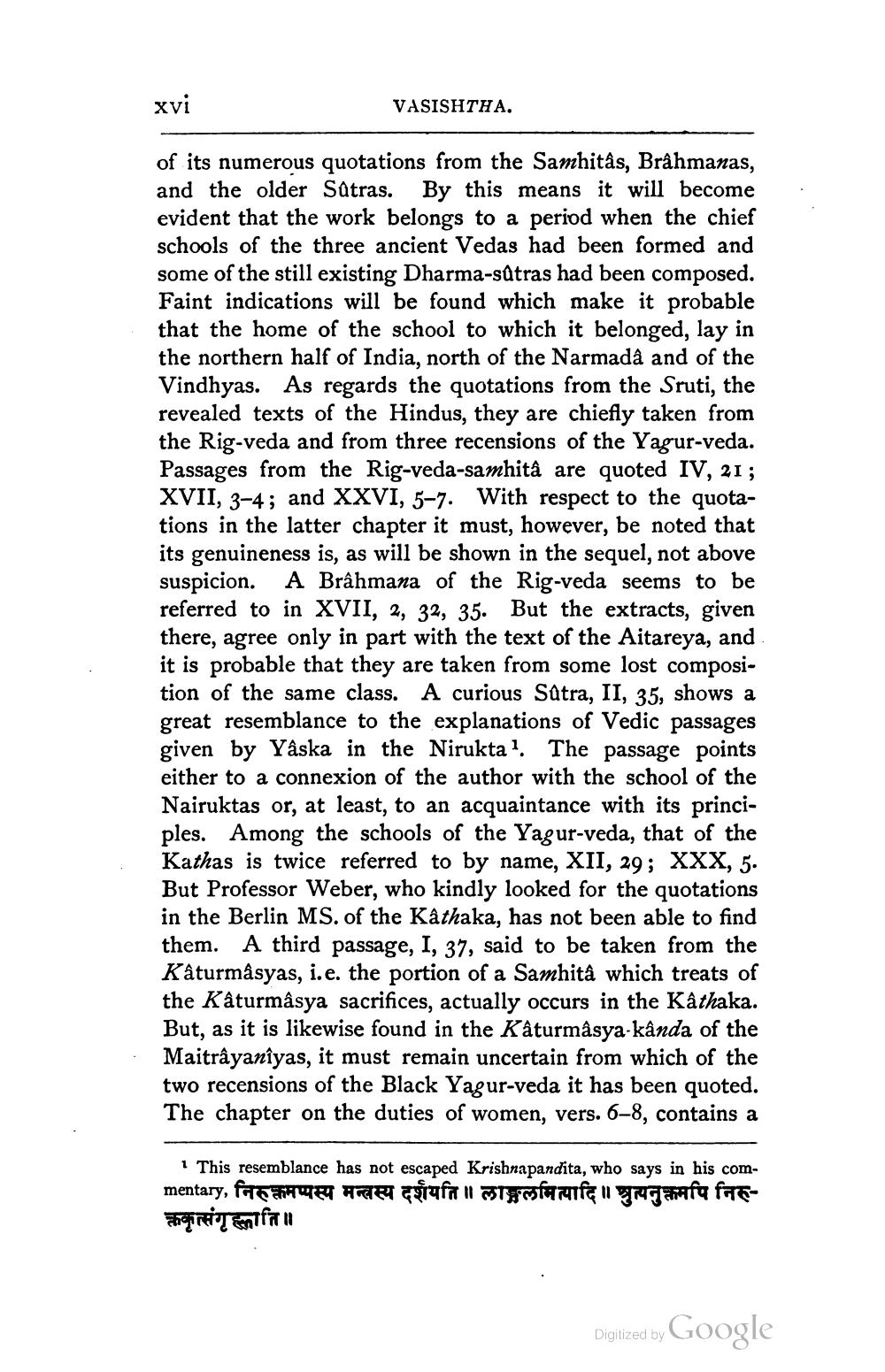________________
xvi
of its numerous quotations from the Samhitâs, Brâhmanas, and the older Sutras. By this means it will become evident that the work belongs to a period when the chief schools of the three ancient Vedas had been formed and some of the still existing Dharma-sûtras had been composed. Faint indications will be found which make it probable that the home of the school to which it belonged, lay in the northern half of India, north of the Narmadâ and of the Vindhyas. As regards the quotations from the Sruti, the revealed texts of the Hindus, they are chiefly taken from the Rig-veda and from three recensions of the Yagur-veda. Passages from the Rig-veda-samhitâ are quoted IV, 21; XVII, 3-4; and XXVI, 5-7. With respect to the quotations in the latter chapter it must, however, be noted that its genuineness is, as will be shown in the sequel, not above suspicion. A Brahmana of the Rig-veda seems to be referred to in XVII, 2, 32, 35. But the extracts, given there, agree only in part with the text of the Aitareya, and it is probable that they are taken from some lost composition of the same class. A curious Sûtra, II, 35, shows a great resemblance to the explanations of Vedic passages given by Yâska in the Nirukta1. The passage points either to a connexion of the author with the school of the Nairuktas or, at least, to an acquaintance with its principles. Among the schools of the Yagur-veda, that of the Kathas is twice referred to by name, XII, 29; XXX, 5. But Professor Weber, who kindly looked for the quotations in the Berlin MS. of the Kâthaka, has not been able to find them. A third passage, I, 37, said to be taken from the Kâturmâsyas, i.e. the portion of a Samhitâ which treats of the Kâturmâsya sacrifices, actually occurs in the Kâthaka. But, as it is likewise found in the Kâturmâsya-kânda of the Maitrâyanîyas, it must remain uncertain from which of the two recensions of the Black Yagur-veda it has been quoted. The chapter on the duties of women, vers. 6-8, contains a
VASISHTHA.
1 This resemblance has not escaped Krishnapandita, who says in his commentary, निरुक्तमप्यस्य मन्त्रस्य दर्शयति ॥ लाङ्गलमित्यादि ॥ श्रुत्यनुक्तमपि निरुकृत्संगृह्णाति ॥
Digitized by Google




